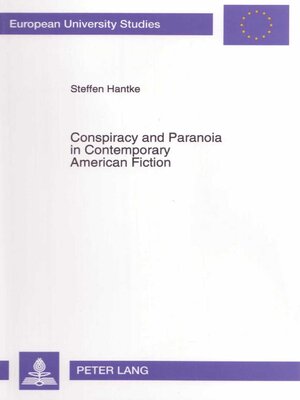Conspiracy and Paranoia in Contemporary American Fiction
ebook ∣ The Works of Don DeLillo and Joseph McElroy · Europaeische Hochschulschriften / European University Studies / Publications Universitaires Européennes
By Steffen Hantke

Sign up to save your library
With an OverDrive account, you can save your favorite libraries for at-a-glance information about availability. Find out more about OverDrive accounts.
Find this title in Libby, the library reading app by OverDrive.



Search for a digital library with this title
Title found at these libraries:
| Library Name | Distance |
|---|---|
| Loading... |
Under the influence of Thomas Pynchon, a generation of postmodern American writers has explored the theme of conspiracy and paranoia, its origins in contemporary American culture, and its political and ideological ramifications. This intense preoccupation with paranoid forms of conceptual organization has helped critics to represent postmodernism as a coherent phenomenon and define it as a period. While for many readers the assumption of periodic homogeneity is still valid, postmodern fiction has, in fact, been diversifying rapidly in the course of its development over the last 20 years. In the works of Don DeLillo and Joseph McElroy, a new set of narrative premises, which mark a significant paradigmatic shift within postmodern American fiction, has begun to emerge from the dialogic interplay with Pynchonesque paranoia.







